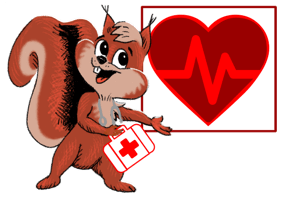For sites concerning the application of EBM principles to the practice of Psychiatry.
More information
More information
Related categories 2
Sites 14
Reviews the diagnostic criteria, differential diagnosis, and the current evidence-based treatments of bipolar disorders. [2011]
Examines dose equivalencies of antidepressants based on randomized evidence, rather than on more arbitrary and less systematic defined dose or consensus methods. [2015]
The guidelines cover the diagnosis of bipolar disorder, its clinical management, and strategies for the use of medicines in treatment of episodes, relapse prevention and stopping treatment, integrated with psychoeducation and behaviour change. [2016]
Review of randomized controlled trials (RCTs) of ketamine, modafinil, pramipexole, lamotrigine, inositol, risperidone, and electroconvulsive therapy for treatment-resistant bipolar depression. [2012]
Provides detailed analysis of five key chapters of the latest edition of the Diagnostic and Statistical Manual (DSM), concluding that DSM-based diagnoses all use different decision-making rules, with vast overlap in symptoms between diagnoses. [2019]
[PDF]
Categorized resources of mental health and substance abuse interventions, available as audio and as downloadable PowerPoint sides.
Belgium-based collection of EBM resources (most in English language) in Psychology and Mental Health.
Compares the benefits and harms of second-generation antidepressants (SGAs), psychological, complementary and alternative medicine, and exercise treatment options, both as first-step interventions for adults with major depressive disorder (MDD), and as second-step interventions for those not achieving remission after SGA therapy. [2015]
Review focusing on the current state of the art in treatment for OCD, limitations that must still be overcome, and suggestions for future avenues of research. [2012]
Summarizes recent evidence in order to provide practical guidance to primary care providers on the management of pediatric depression in their clinical practices. [2013]
Explores the pharmacotherapy of the depressive phase of bipolar disorder, restrictied to medications for which there is observational, open-label, or double-blind randomized controlled based evidence. [2016]
A review of the characteristics of PTSD along with associated risk factors, and evidence-based measures that can be used to screen for and monitor PTSD, highlighting commonly used, evidence-based psychotherapies and pharmacotherapies. [2016]
Evaluation of St. John’s wort (SJW) for the treatment of Major Depressive Disorder (MDD), to determine: (1) its efficacy and safety compared to placebo and to active comparator; and (2) whether the effects vary by severity of MDD. [2016]
Systematic literature review of and recommendations for the pharmacological management of refractory schizophrenia. [2012]
Provides detailed analysis of five key chapters of the latest edition of the Diagnostic and Statistical Manual (DSM), concluding that DSM-based diagnoses all use different decision-making rules, with vast overlap in symptoms between diagnoses. [2019]
[PDF]
Examines dose equivalencies of antidepressants based on randomized evidence, rather than on more arbitrary and less systematic defined dose or consensus methods. [2015]
Summarizes recent evidence in order to provide practical guidance to primary care providers on the management of pediatric depression in their clinical practices. [2013]
Categorized resources of mental health and substance abuse interventions, available as audio and as downloadable PowerPoint sides.
A review of the characteristics of PTSD along with associated risk factors, and evidence-based measures that can be used to screen for and monitor PTSD, highlighting commonly used, evidence-based psychotherapies and pharmacotherapies. [2016]
Evaluation of St. John’s wort (SJW) for the treatment of Major Depressive Disorder (MDD), to determine: (1) its efficacy and safety compared to placebo and to active comparator; and (2) whether the effects vary by severity of MDD. [2016]
Explores the pharmacotherapy of the depressive phase of bipolar disorder, restrictied to medications for which there is observational, open-label, or double-blind randomized controlled based evidence. [2016]
The guidelines cover the diagnosis of bipolar disorder, its clinical management, and strategies for the use of medicines in treatment of episodes, relapse prevention and stopping treatment, integrated with psychoeducation and behaviour change. [2016]
Compares the benefits and harms of second-generation antidepressants (SGAs), psychological, complementary and alternative medicine, and exercise treatment options, both as first-step interventions for adults with major depressive disorder (MDD), and as second-step interventions for those not achieving remission after SGA therapy. [2015]
Systematic literature review of and recommendations for the pharmacological management of refractory schizophrenia. [2012]
Review of randomized controlled trials (RCTs) of ketamine, modafinil, pramipexole, lamotrigine, inositol, risperidone, and electroconvulsive therapy for treatment-resistant bipolar depression. [2012]
Review focusing on the current state of the art in treatment for OCD, limitations that must still be overcome, and suggestions for future avenues of research. [2012]
Reviews the diagnostic criteria, differential diagnosis, and the current evidence-based treatments of bipolar disorders. [2011]
Belgium-based collection of EBM resources (most in English language) in Psychology and Mental Health.

Last update:
July 7, 2022 at 5:25:14 UTC

Check out
Regional: Europe: United Kingdom: Northern Ireland: Business and Economy: Employment
- Recently edited by merlin1
- Recently edited by merlin1